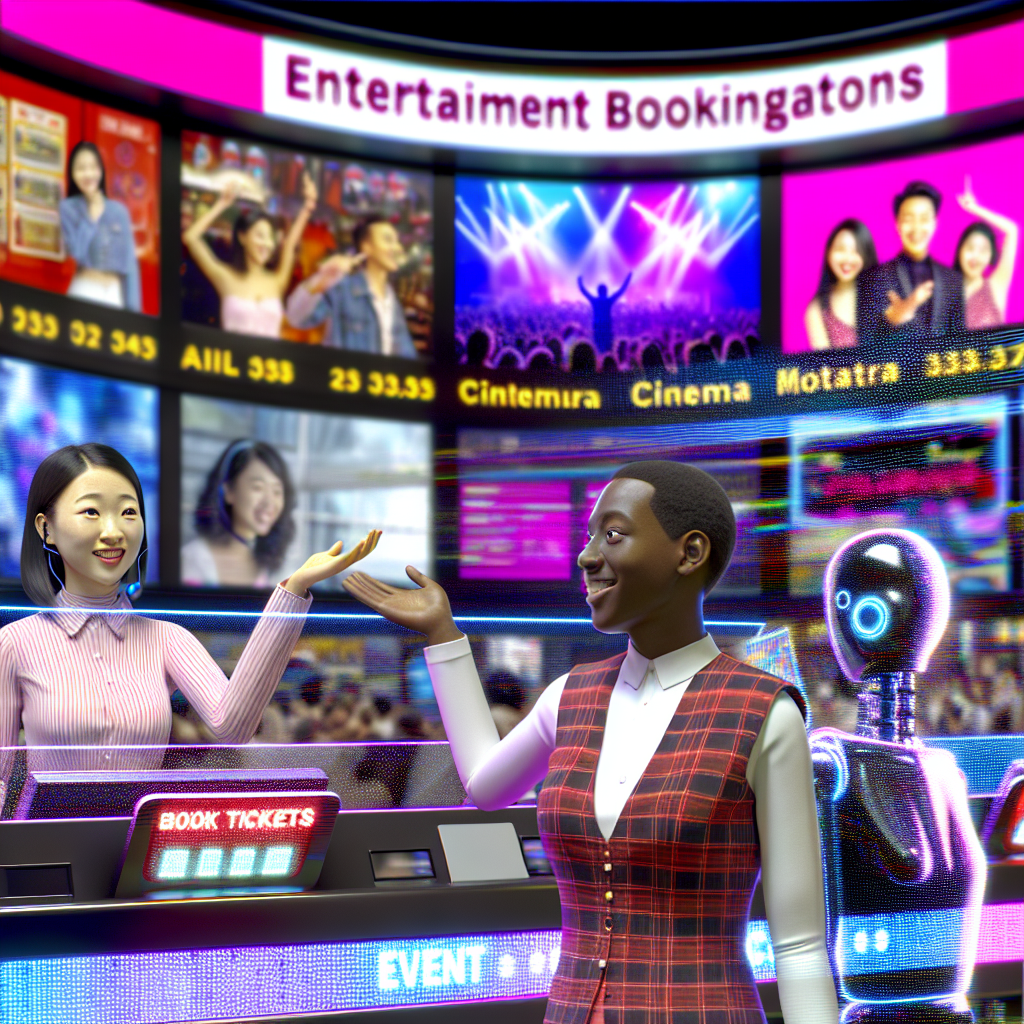Introduction
The entertainment industry is ever-evolving, driven by an increasing demand for streamlined experiences and personalized interactions. As technology continues to advance, artificial intelligence (AI) has emerged as a pivotal force capable of enhancing customer service in this sector. This article will delve into the best usage cases for AI-driven customer service in entertainment, focusing specifically on event bookings, ticket sales, and fan interaction. By understanding how AI can optimize these processes, industry stakeholders can gain crucial insights into improving customer experiences and maximizing business efficiency.
Enhancing Event Bookings with AI
Event bookings are a critical component of the entertainment industry. Whether it’s a concert, theater production, or a sports event, customers seek easily navigable platforms where they can effortlessly reserve their places. One of the most significant applications of AI in this context is the use of chatbots to guide users through the booking process. These chatbots can answer questions, provide recommendations based on user preferences, and help users navigate complex seating charts.
Furthermore, AI algorithms can analyze the data collected from user interactions to predict future behaviors. For instance, if a user frequently attends music festivals, an AI system can recommend similar upcoming events, thereby increasing the chances of a successful booking. This predictive analysis not only enhances user satisfaction but also fosters brand loyalty as customers feel tailored experiences to their preferences.
Streamlining Ticket Sales through Automation
The ticket sales processes often encounter challenges such as overwhelming demand during certain releases, fraud, and customer service bottlenecks. AI-driven systems can help streamline these processes through automation. For example, during high-demand ticket releases, AI can manage virtual waiting rooms to control the influx of users, ensuring that the server remains stable, thus enhancing the user experience.
Additionally, AI can monitor ticket sales trends in real-time, enabling venue operators to adjust pricing dynamically. This price optimization technique, often referred to as dynamic pricing, allows businesses to maximize revenue while ensuring that prices remain competitive and fair for consumers. By analyzing various factors, such as time until the event, ticket availability, and even social media buzz, AI can suggest optimal pricing strategies that align with current demand levels.
Improving Fan Interaction through Personalization
Perhaps one of the most transformative areas where AI can make a mark in entertainment is through enhancing fan interaction. In an age where audience engagement is crucial, AI-driven insights allow companies to design personalized communication strategies that resonate with fans. For instance, extensive machine learning models can analyze social media interactions, purchase histories, and viewing preferences to segment audiences effectively.
Once audience segmentation is established, companies can use AI to automate the creation and delivery of personalized content, such as newsletters and promotional offers. This level of personalization not only fosters a sense of connection between fans and their favorite entertainers but also provides companies with data-driven strategies to improve retention rates.
Implementing Virtual Assistants for Customer Support
Another compelling usage case for AI-driven customer service in entertainment is the implementation of virtual assistants. These AI-powered tools can handle a multitude of customer inquiries simultaneously, freeing up human agents to focus on more complex issues. Virtual assistants can provide 24/7 support for fans and customers, addressing common questions related to event details, ticket availability, and even troubleshooting technical problems.
By reducing response times and operating around the clock, virtual assistants can significantly enhance the customer experience. In scenarios where human agents are necessary, these AI systems can gather pertinent information from users before transferring them to an agent, allowing for smoother communication and quicker resolutions.
Utilizing Data Analytics for Improved Customer Insights
The entertainment industry generates vast amounts of data, from ticket sales to customer feedback. AI can play a transformative role in analyzing this data to extract actionable insights. By employing AI-powered analytics tools, companies can identify trends, measure customer satisfaction levels, and drive decision-making processes to better align with consumer expectations.
This data-driven approach not only enables proactive service improvements but also fosters innovation. For example, if data reveals a growing interest in a specific genre of music or type of performance, companies can shift their focus to cater to this demand. By understanding customers on a deeper level, entertainment businesses can tailor their offerings while simultaneously enhancing the overall customer experience.
Facilitating Integrated Multi-Channel Support
As customer interactions with brands become increasingly fragmented across various channels—social media, websites, mobile apps, and even email—it’s essential for entertainment companies to offer integrated multi-channel support. Here, AI can help streamline communication by providing a cohesive experience across all platforms. AI systems can track customer interactions across channels, enabling users to switch from one platform to another without repeating information.
Moreover, AI can identify customer preferences for certain communication channels, allowing companies to dynamically tailor their support strategies. For instance, if a customer prefers to engage via social media, AI can ensure that support resources prioritize these inquiries, fostering a more personalized and efficient service experience.
Conclusion
In conclusion, the implementation of AI-driven customer service in the entertainment industry presents a myriad of opportunities for enhancing event bookings, streamlining ticket sales, and improving fan interactions. By leveraging chatbots, virtual assistants, and data analytics, companies can establish a more personalized, efficient, and engaging approach to customer service. As the competition within the entertainment sector continues to intensify, embracing AI technologies becomes not only a strategic advantage but also a necessity for those looking to thrive in a digital landscape. The future of entertainment customer service is undoubtedly intelligent, efficient, and immensely promising.

